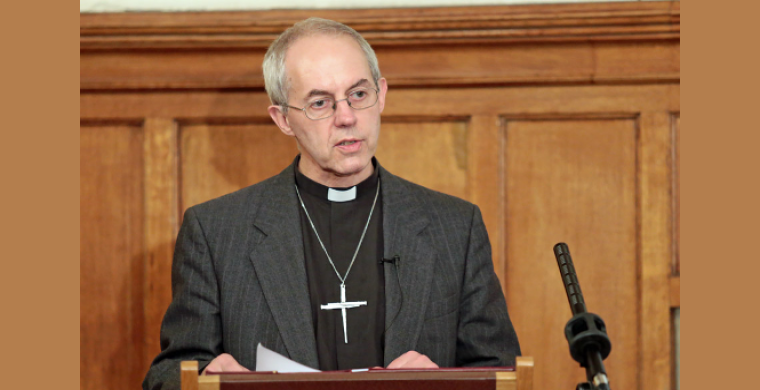Justin Welby: The most common feature of Anglicanism is persecution
By Ruth Gledhill
CHRISTIAN TODAY CONTRIBUTING EDITOR
www.christiantoday.com
May 6, 2015
The most common feature of Anglicanism worldwide is being persecuted, the Archbishop of Canterbury said last night. But Christians also need to take measures against their own tendencies towards violence.
Speaking at the Board of Deputies of British Jews President's Dinner, Justin Welby said that in the last two years he and his wife Caroline had travelled to all 37 provinces of the Anglican Communion.
"The most common feature of Anglicanism is actually persecution, and that goes with poverty. Of our 37 provinces, roughly 24 are in areas of conflict or post-conflict."
Over the last few weeks he received emails from an archbishop pleading for support as his churches were shelled and the paths to them mined -- by violent Buddhist radicals.
Two weeks before that he received pleas from south India, where Hindu violent radicalism had burned more than 200 churches. "And then we need hardly say about what has been happening with ISIS and Boko Haram; in Libya; to the Copts, the Egyptian Orthodox; in northern Nigeria, and right across the region of the Levant and Mesopotamia."
He said the response must be global, must reach across generations and must be ideological.
"Within the Christian community we need to stand against our own tendency, well exhibited over many centuries, to violence: violence against each other and above all violence against Jewish communities, in horrendous and horrible ways going back well over a millennium."
At a time once more of rising antisemitism he said the church must "stand against" anything that imperils Jewish communities.
"It has been a very shocking 12 months, with ISIS, the Paris attacks, Boko Haram, Kenya and many, many other forms of very severe religious violence aimed at Jewish communities in Europe and around the world -- and at other religious communities, including very serious attacks on Christian communities and Anglican communities."
He apologised for a tweet sent by the pro-Palestinian vicar Rev Stephen Sizer, who was subsequently banned from social media by the church.
Archbishop Welby described Sizer's language in the tweet as "atrocious". He said: "And that's why I want to say, in this speech, how sorry I am that that happened, to apologise for that. We did seek to deal with it quickly and effectively, and I hope and pray that we have done so."
He admitted that the church in all its diversity will continue to fall down on this from time to time. "But I do want to make a commitment that we will take antisemitism seriously within the church."
Archbishop Welby, speaking about the difficulties of reconciliation, also said the worst "poison pen" letters he gets are from other Christians.
"The reality is that we do not as faith groups in our society always exhibit that secure tolerance to each other that enables us to speak powerfully of secure tolerance to the world around us. Christians are as bad at anyone at this -- in fact, if I dare to be competitive, I think we're worse."
END














